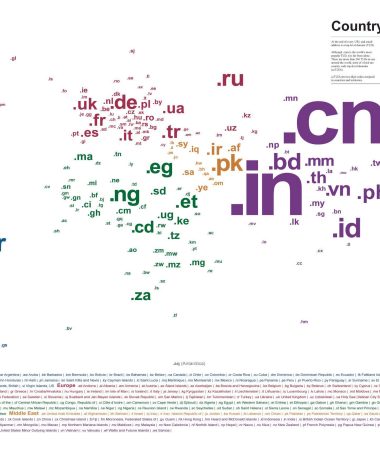Selling a domain is a process that can be both profitable and rewarding, but it requires an understanding of the domain market, careful preparation, and strategic planning. Here’s a comprehensive guide on how to sell a domain:
1. Evaluate Your Domain
- Determine the Value: The value of a domain depends on factors such as keyword popularity, length, brandability, and extension. Tools like EstiBot or online marketplaces can provide an approximate valuation.
- Consider the Demand: Research to see if there are businesses or industries that could benefit from owning the domain.
2. Prepare the Domain for Sale
- Provide Evidence of Ownership: Ensure that all relevant details are accessible and accurate.
- Clean Up the Domain: If the domain has a website, remove any personal or sensitive content.
- Optimize the Domain Name Record: Consider forwarding the domain to a sale landing page or setting up professional email forwarding.
3. Choose a Selling Strategy
- Direct Sale: You can approach potential buyers directly through email or social media.
- Online Marketplaces: Platforms like Sedo, GoDaddy, or Flippa allow listing domains for sale.
- Auctions: Some marketplaces offer auction services where buyers bid on the domain.
4. Set the Price
- Fixed Price: You can set a specific price for the domain.
- Negotiable Price: You can allow potential buyers to make offers.
- Reserve Price: In an auction, you can set a minimum price that must be met.
5. Negotiate with Potential Buyers
- Be Transparent: Provide all necessary information and respond to inquiries promptly.
- Stay Firm but Flexible: Know your domain’s worth but be open to reasonable offers.
6. Complete the Transaction
- Use a Secure Payment Method: Escrow services can protect both the buyer and the seller.
- Transfer the Domain: Follow the procedures set by the domain registrar to transfer ownership.
- Provide After-Sale Support: Assist the buyer with any post-sale questions or issues.
7. Legal Considerations
- Comply with Laws and Regulations: Be aware of legal requirements in your jurisdiction.
- Use Proper Contracts: A well-drafted agreement can protect both parties.
Selling a domain can be an intricate process that demands careful attention to various aspects such as valuation, pricing strategy, negotiation, and legal compliance. By understanding the marketplace, being clear and transparent with potential buyers, and utilizing secure payment methods, sellers can achieve success in the domain market.
Though it may seem daunting, many tools and services are available to assist sellers throughout the process, making it accessible even to those new to the domain industry. By adhering to best practices and remaining diligent, anyone can turn their domain into a profitable sale.
8. Advanced Strategies for Selling Domains
Portfolio Selling
If you own multiple domains, consider selling them as a portfolio. Bundling similar or related domains can attract buyers looking for a complete package, potentially leading to a higher sale value.
Domain Flipping
This strategy involves buying domains at a low price and selling them at a profit. Successful domain flipping requires deep market insight, timing, and the ability to identify undervalued domains.
Utilize a Domain Broker
A professional domain broker can provide expert guidance, negotiate with potential buyers, and even find prospects for you. Their expertise can often lead to a quicker sale at a higher price.
9. Marketing Your Domain
Social Media Marketing
Utilize platforms like LinkedIn, Facebook, and Twitter to promote your domain. Targeted posts and advertising can reach potential buyers in specific industries.
Content Marketing
If the domain hosts a website, consider using content marketing to highlight its potential value to prospective buyers.
Networking
Attend industry events, conferences, and forums to network with potential buyers and other domain sellers. Personal connections can lead to sales opportunities.
10. Avoid Common Pitfalls
Overpricing
Setting a price too high can deter potential buyers. A fair and realistic price, supported by market analysis, can lead to a successful sale.
Legal Issues
Ensure that the domain does not infringe on trademarks or other intellectual property rights. Legal issues can result in the loss of the domain and legal penalties.
Lack of Transparency
Honesty and transparency build trust with buyers. Concealing information can lead to lost sales and a damaged reputation.
11. Monitoring and Analyzing the Market
Staying informed about market trends, competitor pricing, and emerging opportunities can give you a competitive edge. Consider subscribing to industry newsletters, blogs, and forums.
12. Post-Sale Considerations
Tax Considerations
Consult with a tax professional to understand any tax obligations related to the sale.
Feedback and Reviews
Encourage buyers to leave feedback or reviews on platforms where the domain was listed. Positive reviews can enhance your reputation for future sales.
Selling a domain is more than a mere transaction; it’s a strategic process that involves careful planning, negotiation, and execution. By employing advanced strategies, leveraging various marketing channels, avoiding common pitfalls, and staying abreast of the market, sellers can maximize their success.
Whether you’re a seasoned domain trader or looking to sell a single domain, this comprehensive guide offers actionable insights and best practices to navigate the complex world of domain sales.
Remember, patience, persistence, and adherence to ethical practices are essential components in turning your domain into a profitable venture. Utilizing professional services like brokers, legal advisors, and marketing experts can also elevate your success in the domain marketplace.








